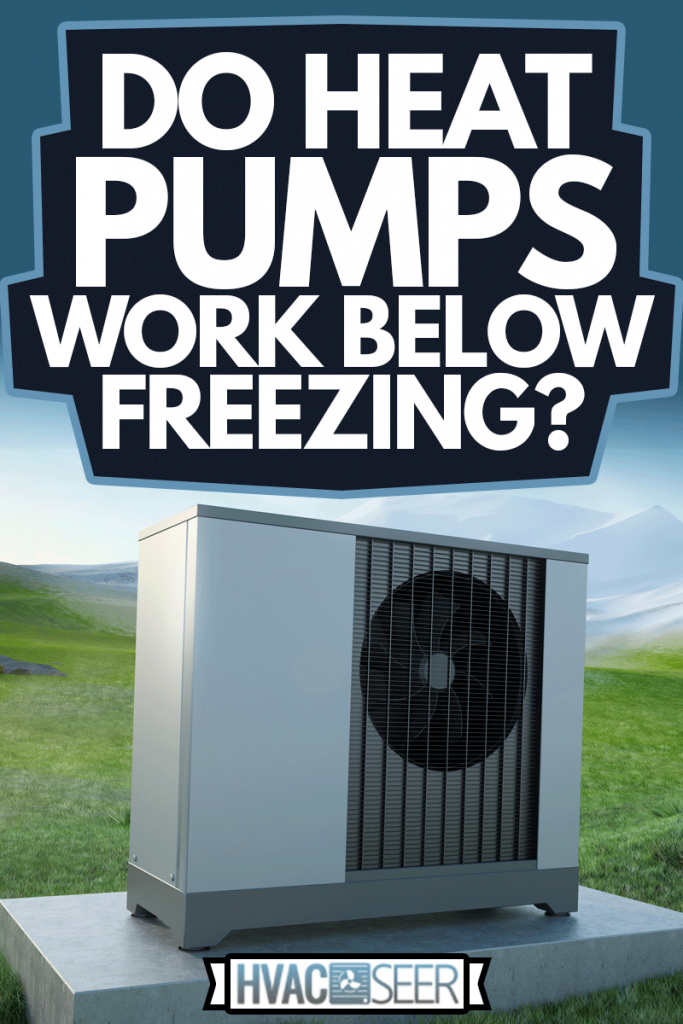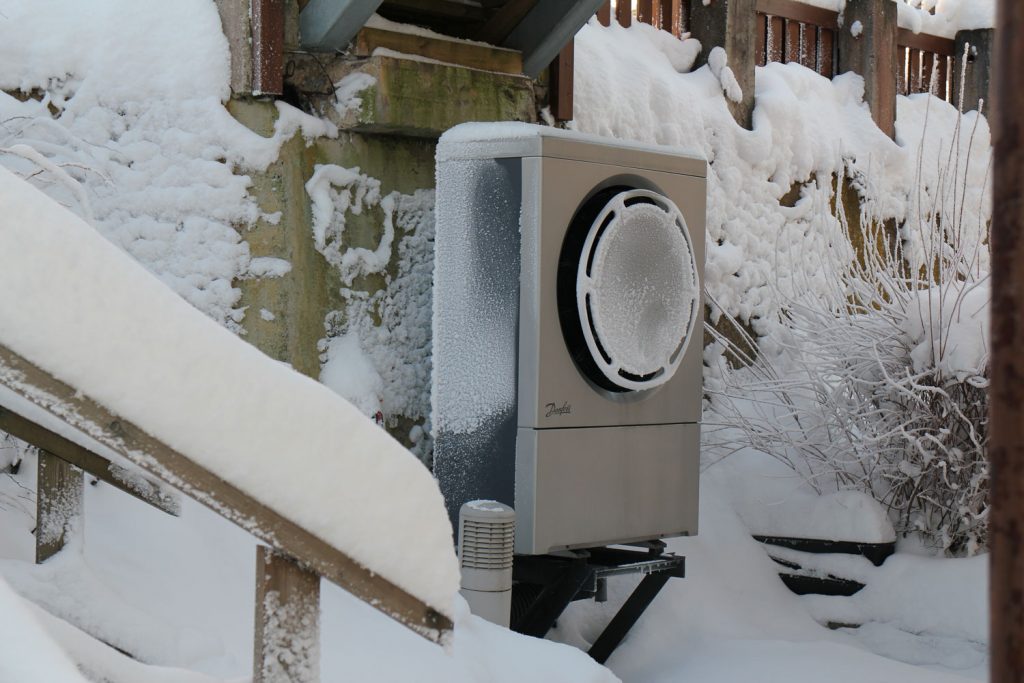Heat pumps provide the temperature we prefer inside our houses when the weather outside doesn't. They can cool or warm rooms and the water system of the house. But have you ever thought if they still work if the temperatures are below freezing? In this article, we have researched that for you.
Yes, heat pumps will still work even below freezing, especially modern ones. Good heat pumps will still perform efficiently at 25 degrees Fahrenheit. When temperatures exceed this, you'll notice performance loss. The best way to remedy this would be a secondary heat source, such as a gas furnace or electrical resistance coils.
Want to learn more details about heat pumps and how to keep them working even if the temperature is already freezing? Continue reading as we discuss how to keep them working even under intense weather.

How do I keep my heat pumps from freezing in the winter?
It would be best to understand that it is not normal for the whole heat pump to freeze often, even the outer part of the unit. If this happens, you need to have your unit checked as there might be something wrong with it. Putting this off can lead to more significant and severe damage to the whole heat pump.
This is because air has to pass between the fins of the unit. Something is broken if the motor cannot make the air pass through. This may cause your heat pump not to work well. Regular check up on the unit and the manufacturer's recommended maintenance can help avoid such accidents.
Air Filter Maintenance
Another thing to look out for is the air filter. A faulty air filter can also cause your heat pump to freeze up because the airflow in your unit is blocked. Clean or replace the filter if you suspect this is the cause; follow the manufacturer's recommendations for air filter care.
Water Hose
A temporary fix to freezing heat pumps is a water hose. You can use this to melt the build-up of ice on your unit. We recommend that you not use other methods as it may cause more damage to your heat pump. As we also said, this should be a temporary fix. You should immediately have your unit checked if you are experiencing this.
Defrost Mode
The defrost mode is when your heat pump switches into air conditioning mode for a while until it unfreezes. After which, you can go back to heat mode. The defrost mode process only lasts for 10-15 minutes. This only happens when the heat pump gets too cold to prevent your heat pump from freezing up.
Another indication that there is something wrong with your heat pump is the frequency of defrost mode. Your heat pump should only enter this mode every 35-40 minutes, depending on how cold it is.
If it is more frequent than that, it means that your unit is easily freezing. You can identify if your heat pump has gone to defrost mode if the fans have stopped. Usually, there are also blinker light indicators that tell you.
Check out our previous article about heat pumps, where we discuss the different types available and which one could work the best for your needs.
What temperature should I set my heat pump during winter?

The Department of Energy recommends setting your heat pump temperatures to 68°F. According to them, this is the optimal temperature for comfort and energy efficiency. It is also advised to adjust the temperature settings down 7-10 degrees overnight or during the day for nine-hour periods. This will help you save up to 10% in energy savings.
Setting your heat pump more than the average recommended temperature adjustment can cause fluctuations in your energy consumption, resulting in the heat pump activating its backup electrical heat strips, causing extra power usage.
Heat pumps use more power as outdoor temperatures drop, so a severe setback can cause very high bills during the middle of winter.
Additionally, this practice also helps in prolonging the lifespan of your heat pump. Not following the recommended 7-10 degrees also adds more pressure to your heat pump. Your heat pump will work harder to adjust the temperature you set. If the temperature gaps are way too far, the motor of your heat pump will do exert extra effort.
Is it OK to run a heat pump on emergency heat?
Yes, it is okay. Heat pumps have what we call supplemental heating. Usually, it is in the form of electric resistance heating, which is located in the indoor unit. When you turn on emergency heat, you are using supplemental heating and not the heating produced by the heat pump itself.
You must remember that you should only run emergency heat if your heat pump is malfunctioning. This also has to do with more power consumption depending on your supplemental heating source, be it gas or oil.
The longer you use this, the more you spend on it. Additionally, as they are not designed for prolonged use, the efficiency that you will get from a fully functioning heat pump is still better.
This can also be an indication of something faulty or malfunctioning in your heat pump. We recommend calling a professional immediately, to have your heat pump checked as a preventive method to ensure that it is not broken. The last thing you would want is a non-functioning heat pump during the winter season.
We have written a more comprehensive guide on using your emergency heat on your heat pump titled, "When And How To Use The Emergency Heat Setting On Heat Pump."
How do you unfreeze a heat pump in the summer?

You might be taken aback that your heat pumps are frozen even during summer when temperatures are high. One main reason this can occur is low refrigerant levels; this is a chemical that absorbs environmental heat and turns it to cool air with the help of compressors and evaporators. You can have this checked by a professional HVAC technician.
Running the defrost cycle manually is the best way to handle a frozen heat pump in the summer. You can manually set this by referring to the manufacturer's manual, as this differs from brand to brand. Additionally, if there is any visible physical damage to your heat pumps, a quick check can help tell you if any repairs should be done.
The perfect way to avoid any of this inconvenience is by keeping up with the maintenance and service your unit requires. Regular cleaning helps the system run smoothly, as it removes the accumulated dirt in its vents and filters. Consulting an HVAC technician is better than doing a DIY assessment on your unit.
In summary

Heat pumps can still perform even under freezing conditions. Although modern heat pumps do a better job compared to older ones, they each lose performance as temperatures drop. A great way to remedy this is by adding a secondary heat source.
Your heat pump provides the temperature that you need when the weather doesn't. That's why it's imperative to follow the recommended scheduled maintenance and checkup of your heat pump. This can prevent further damage and help make the lifespan of your heat pump longer.
